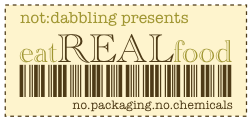 When I was a child, in the late 50s and 60s, there was widespread famine in India, Africa, and Asia, and serious hunger in the eastern US and Mexico. This wasn't like today, when famines are caused by religious and political upheaval, and climate issues.
When I was a child, in the late 50s and 60s, there was widespread famine in India, Africa, and Asia, and serious hunger in the eastern US and Mexico. This wasn't like today, when famines are caused by religious and political upheaval, and climate issues.These famines were caused because the world was not growing enough food. We couldn't feed ourselves. My childhood was spent anticipating a Malthusian nightmare where the population outstripped the food supply.
Of course, it didn't happen. And it didn't happen because of Norman Borlaug who engineered high-yield grains and introduced modern agriculture to those parts of the world that were in deep trouble. At the same time, to oversimplify, large areas of US and Canadian farmland were being converted to other uses, industrial, recreational, and domestic, because of those same food production innovations. It's why there is no farmland within spitting distance of most major metro areas anymore. Cheap fuel and government subsidized highways and shipping completed the equation. All over the world, the middle classes eat food grown far away, by someone else.
 Enter the local food movement. I spent the afternoon at the Family Farmed Expo, talking to exhibitors and listening to panels discuss buying local, knowing your farmer, preserving food yourself and organic farming.
Enter the local food movement. I spent the afternoon at the Family Farmed Expo, talking to exhibitors and listening to panels discuss buying local, knowing your farmer, preserving food yourself and organic farming.The overwhelmingly young, white, middle-class, educated crowd were sincere and enthusiastic, and I think misguided.
There are six and a half million people along the Wisconsin-Illinois-Michigan shoreline. Do we really want "local" farms (and I use the term loosely, as did the Expo, with exhibitors from as far as southern Indiana). Do we have that farm capacity, or do we want to? I wonder if it is better to let land go back to its ur-natural state, than to a pre-industrial local subsistence model.
Food preservation, also, struck me as naive in its economy of scale. Is it really better for a million local households to each have a dehydrator ($80) and a couple of freezers ($200 to $350 each), and a pressure canner ($200 to $600), and a vacuum sealer ($150)? One panelist had all of these so that her children can only eat fruit "in season" because they've frozen strawberries themselves (purchased at considerable expense from a "local" grower at a Farmers Market). Left out of the calculation were the south Asian factories where all that stuff is being made so that well-off midwestern housewives can go back to the land.
I would like to posit that a better direction for our political energies is toward a sustainable agriculture, both organic and chemical, some local, some distance, with carbon neutral shipping and real pricing, and the rethinking of tax subsidies to support the farmer and not the chemical multinationals. We need to insist on labeling that allows us to know what goes into our food. We need to make more food ourselves, whether from locally milled flour, or wheat shipped in from India. We need to spend the few extra pennies it costs to support what Michael Pollan calls "industrial organic" that uses economies of scale intelligently to replenish and nurture the land.
It's a worthy effort, and I'll support these vendors when I can. I grow a garden, and I do a lot of preserving (without all the expensive equipment). But what I took away from the Expo was a desire to worry less about where my food comes from, and more about how it was grown.
For a fantastic conversation about this issue, visit MyFolia, where I posted the same essay to my journal.









I often wonder how it's all going to be achieved. We have a hard enough time feeding 6trillion, how are we going to do it all in 50 years with a third again as many people - and keep it local/organic/sustainable?
ReplyDeleteTo that end I hope to be able to educate my daughter to _think_ about her actions instead of just following what the pack does. I want her to know how food is grown and not to eat a bunch of junk like she sees the other kids at school doing. I'm so excited yet scared to death for this new generation of kids. Perhaps we can all teach them how to make things right?
That's the point-- the planet *tried* to do it keeping it local. I don't think it's possible. We need industrial-scale farming to meet an industrial-scale demand, or else we need to bring the population back down by a factor of 3 or more. But I think we *can* do industrial-scale farming and keep it organic and sustainable, through more intelligent use of regulation and subsidy.
ReplyDeleteWe'll have to do it on an industrial scale if the population continues to grow. We need to get rid of the crap food and this thought that "somebody" will save us and we'll all be just as happy as we were five years ago. Anyone that took biology or sociology or ecology in school should undertand concept of balance. We can NOT keep taking and continue to expect that nothing will change. I know, I'm preaching to the choir here.
ReplyDeleteThe direction that population vs. food is going now rings too much like soilent green to me. I'll pass, thank you.
Jen, it's EXACTLY Soylent Green-- we make fertilizer from fossil fuels (dead animals and plants), to grow corn for feed, which we mix with cow body parts, which we then feed to the cows. Industrial cows are all cannibals.
ReplyDeleteOne of the reasons I'm not anti GMO is precisely because a lot of the crops created to feed the world ARE GMOs. I'm fairly alone in this notion, locally (Ann Arbor is so very predictably liberal) and in blogland. S'alright. I'm not a big meat eater and I do believe in treating lifestock humanely. I also prefer to get eggs from chickens I know personally, cuz they just taste better. I also like to grow a lot of veggies because I'm a crazy gardener. But you can't make me can anything and no way am I buying a second freezer. All of which is to say, I accept a lot of the local food movement, and I do believe i growing your own food because it tastes better, but I accept I can't grow everything. And I'm not giving up bananas or oranges or pineapples just because they don't grow in MI. And as far as my German and English food imports, they'll have to be pried from my cold dead fingers, LOL. It's nice having somewhere to talk about this without being chastised for not being TOO MUCH or NOT ENOUGH of any given movement!
ReplyDeleteLet me tell you, these attitudes did NOT make me popular at the Expo. After a couple of hours, I just shut my mouth. Much safer.
ReplyDelete